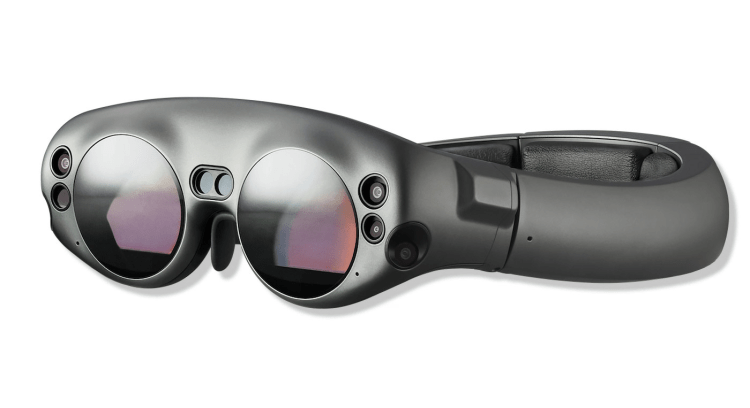After giving his personal Magic Leap One development kit to iFixit for a physical teardown last week, controversial Oculus founder Palmer Luckey has posted a blunt and detailed conceptual teardown of the Creator Edition on his personal blog. Calling the augmented reality headset a “tragedy in the classical sense,” Luckey bemoans not only the $2,295 product but the impact Magic Leap has had on the AR industry, saying that the company’s “massive funding and carefully crafted hype sucked all the air out of the room.”
The crux of Luckey’s criticism is that Magic Leap One was designed impractically, relying on gimmicky display and controller technologies that don’t work particularly well now, and can’t easily be scaled upwards to improve. “It is less of a functional developer kit,” Luckey says, “and more of a flashy hype vehicle that almost nobody can actually use in a meaningful way, and many of their design decisions seem to be driven by that reality.”
While the entire post is worth reading, the Magic Leap One Creator Edition comes under fire for four key reasons: its controls, display, operating system, and industry impact. His only real praise was for the company’s “A+” LightPack computer, which he said offers solid computing power without forcing all of the components into a heavy headset, a good design choice. Virtually everything else, he suggests, is seriously problematic.
Luckey says that Magic Leap’s controller uses a laggy tracking system that is “probably the worst implementation I have seen released to the public.” Between a non-clickable trackpad and magnetic tracking, the controller is slow and drifty, exhibiting major issues inside metal structures that will prevent it from being used well in “any kind of industrial environment” — a key use of expensive AR gear. He also notes that eye tracking isn’t included in the OS or software, so it’s hard to judge how well or poorly it performs. Developers “need a controller that just works,” Luckey said, and “there are good reasons no other company decided to walk this path.”
On the display front, Luckey says that Magic Leap’s “Photonic Lightfield” offers only a small step beyond Microsoft’s HoloLens: a slightly larger FOV and better black levels, but plagued with more rainbow artifacts and jitter. Despite all of the hype, he says, the technology is actually just a bifocal display that places computer-generated objects at one of two focal distances — roughly 0.75 and 5 meters — while everything else at other distances will look mismatched.
Luckey believes that the Magic Leap technology can’t practically be scaled up with more layers of depth, unlike true varifocal display solutions under development by Oculus and Nvidia. Magic Leap’s solution, he says, is like a broken clock that displays the correct time twice a day, but is wrong at all other times.
When it comes to software, Luckey says that the company’s “whole new operating system” LuminOS is actually just a customized version of Android with a floating Wear OS-style watch menu as its home screen. Luckey says that its key trick — attaching app windows to real-world objects — was shown off by Microsoft three years go, and that LuminOS combines “some of the worst parts of phone UI slammed into some of the most gimmicky parts of VR UI.”
As a VR entrepreneur who sold his company to Facebook, Luckey’s most cutting criticism is about the impact Magic Leap’s hyping and fundraising have had upon the AR and extended reality (XR) industry. “Spinning hype and monopolizing investment with promises that cannot be met is bad for the entire XR industry, not just Magic Leap,” Luckey notes, adding that for all of the company’s claims and years of development, it has only taken a small step forward. “[T]his is more Hololens 1.1 than Consumer AR 1.0,” he opines. “Consumer AR can’t happen without advancement, and it seems those advancements will be coming from other companies.”
Luckey was famously dismissed from Facebook after funding a smear and trolling campaign during the 2016 presidential election, undermining his years of pioneering and positive work in bringing virtual reality to the mainstream. Politics aside, Luckey’s VR, AR, and XR knowledge is impressive, and his big picture industry perspectives continue to be interesting. iFixit credited him in the Magic Leap One physical teardown as a VR expert, “sometimes-nemesis,” and contributor of “some great content.”

